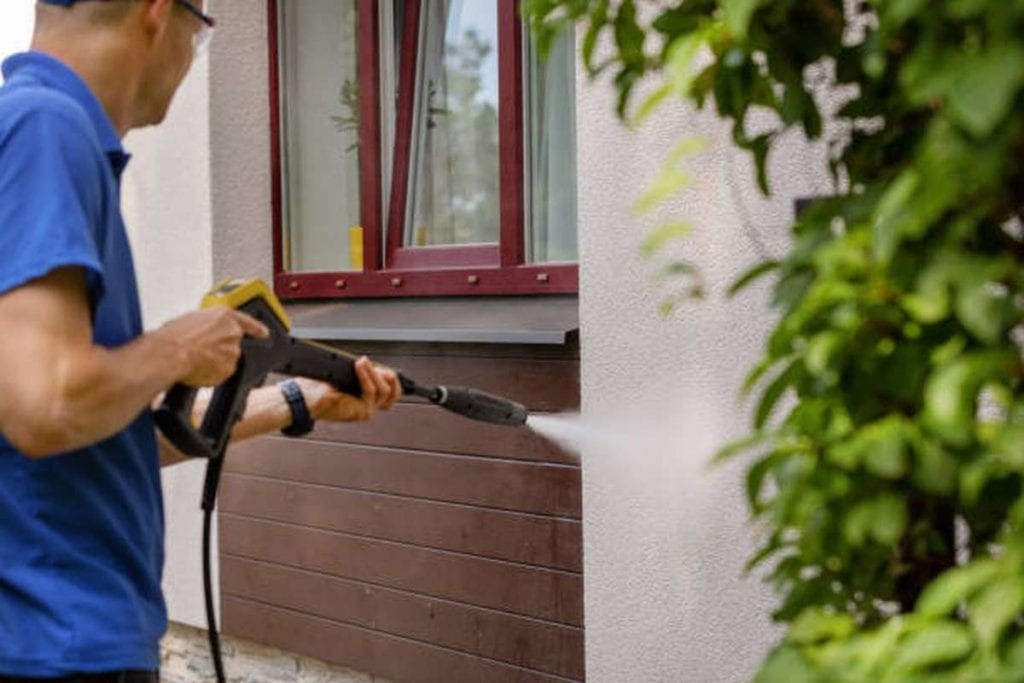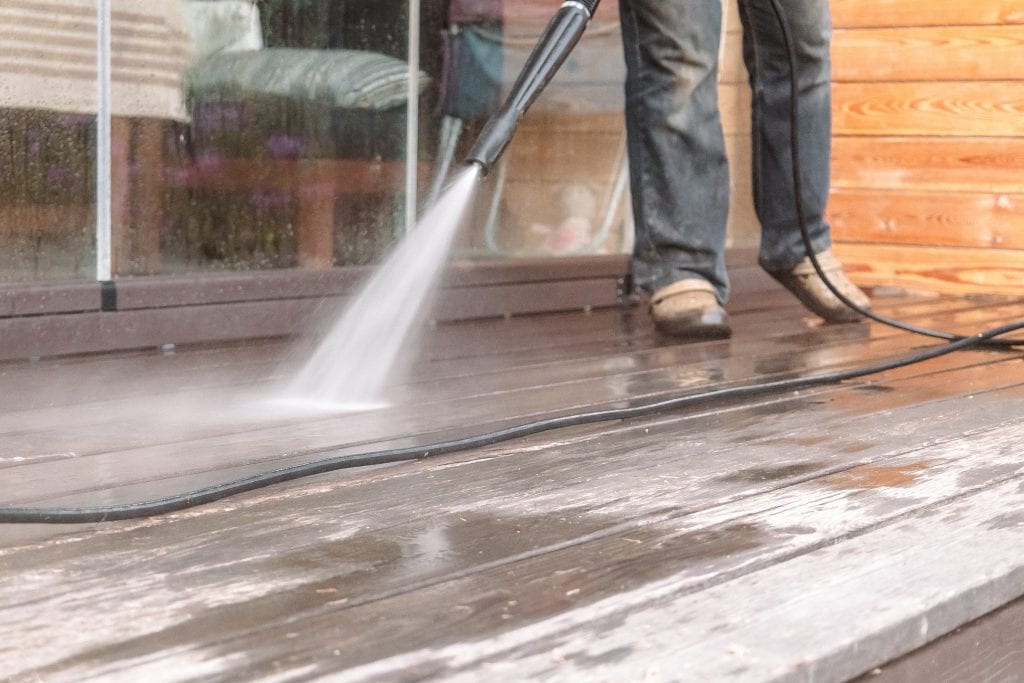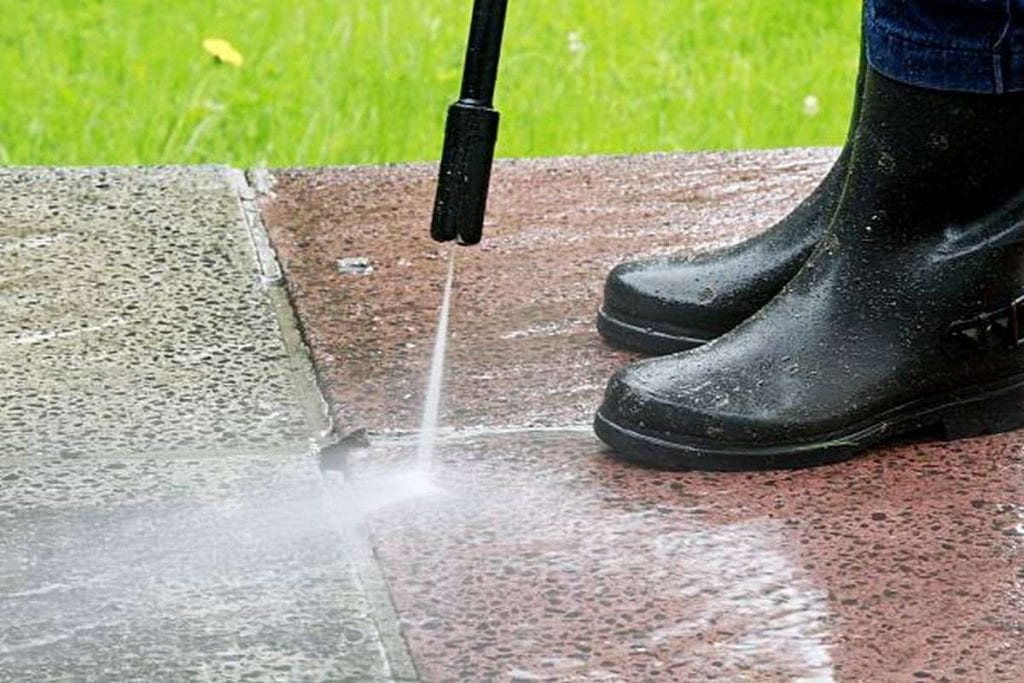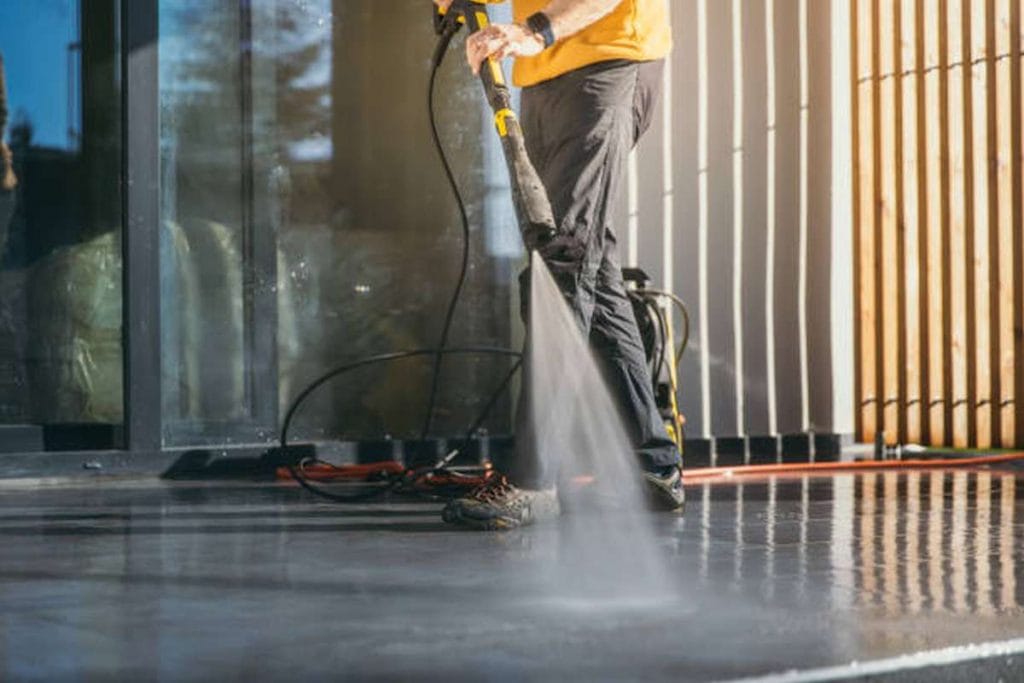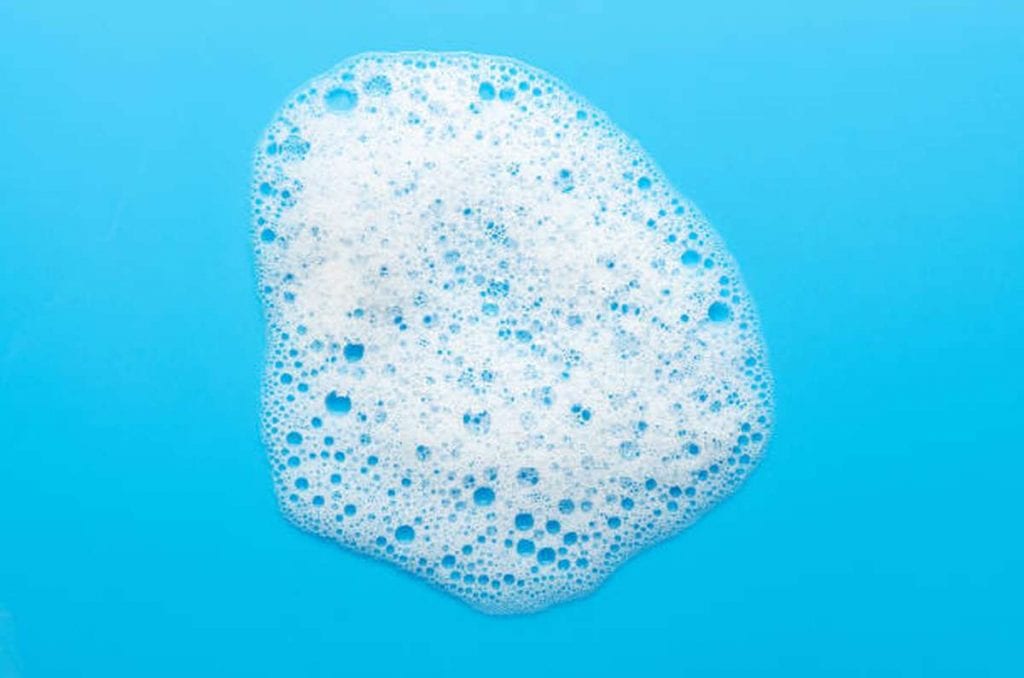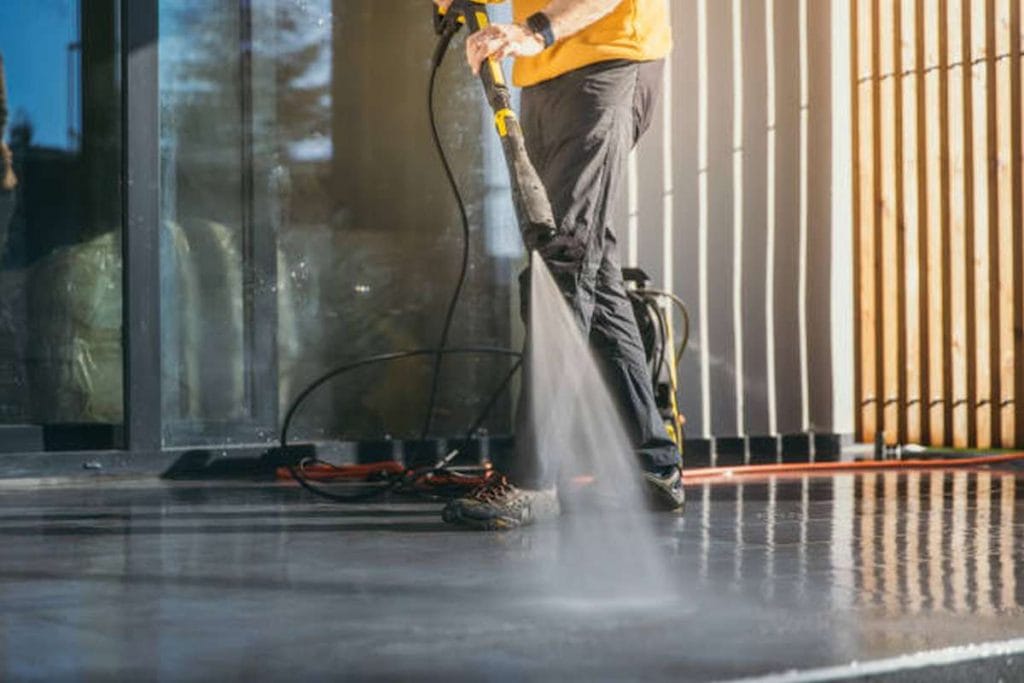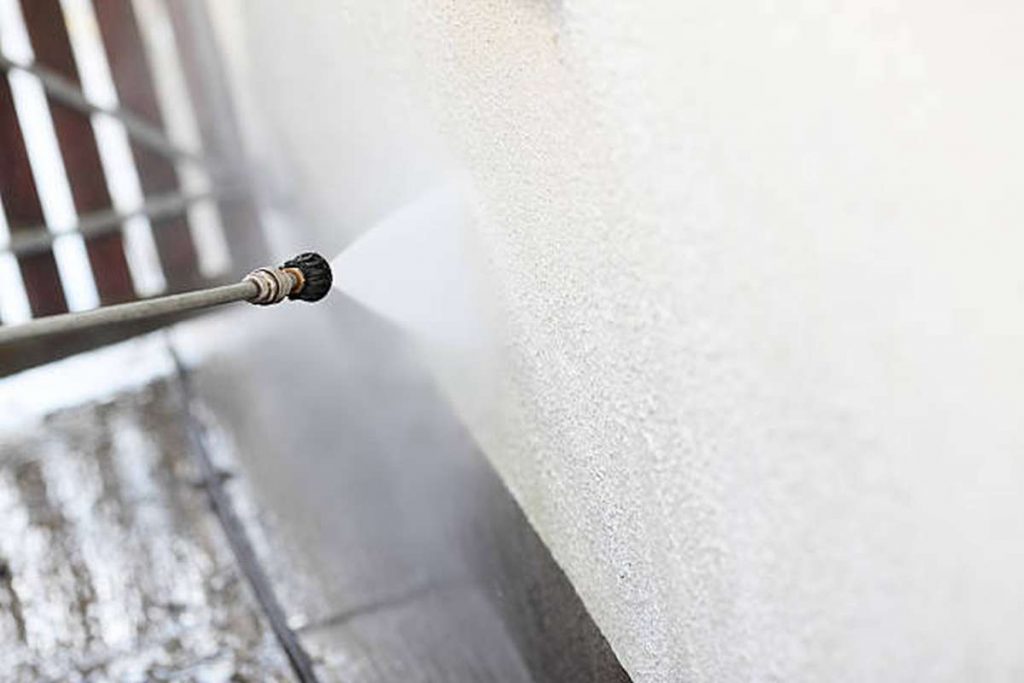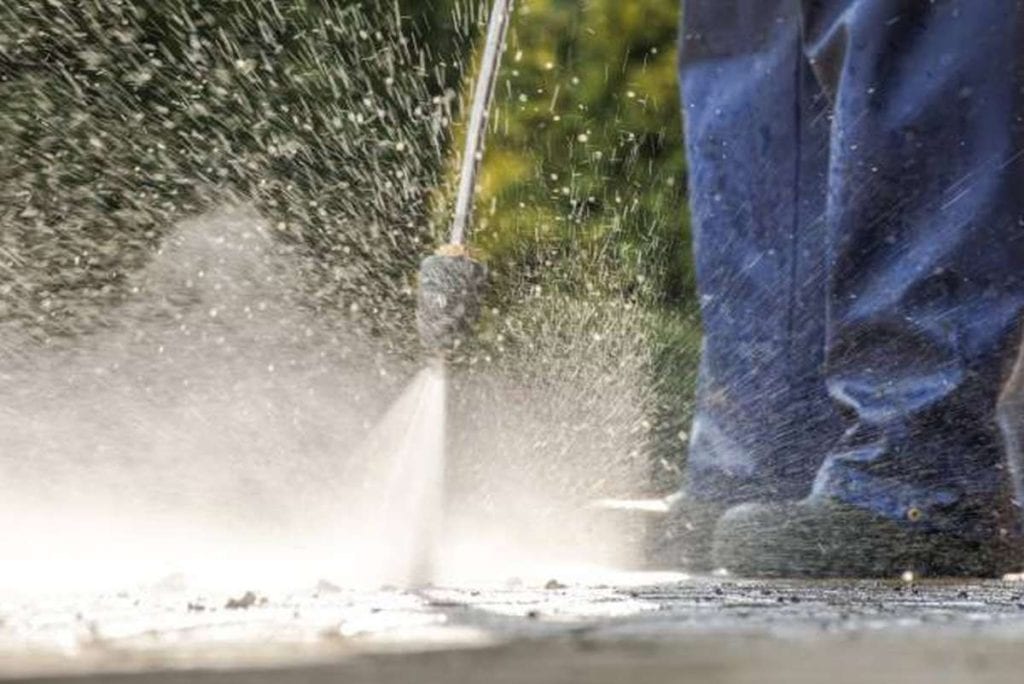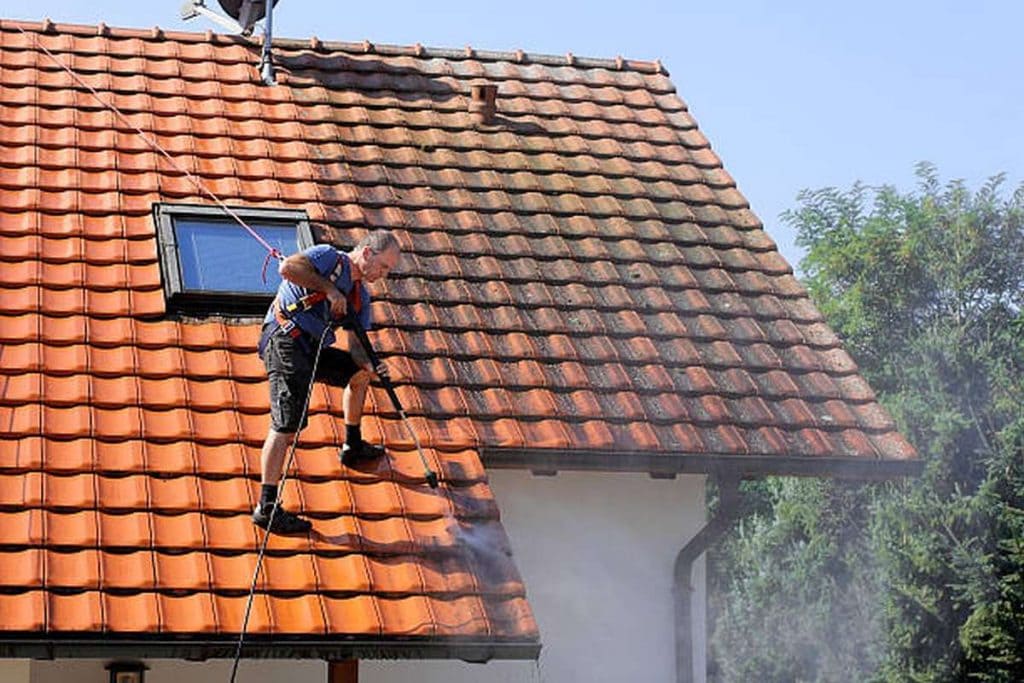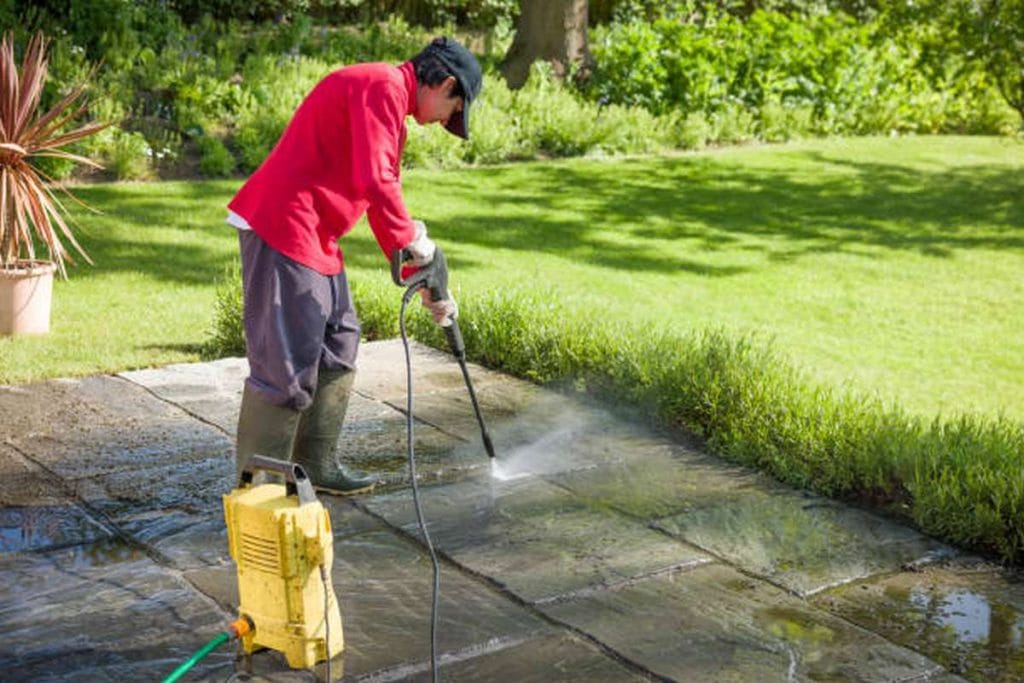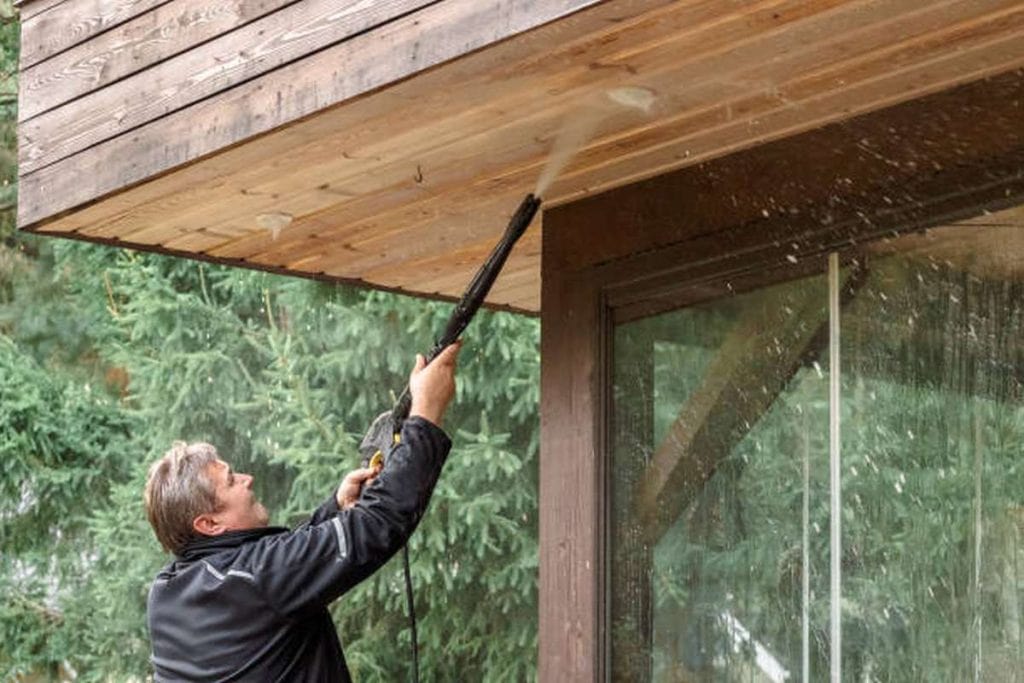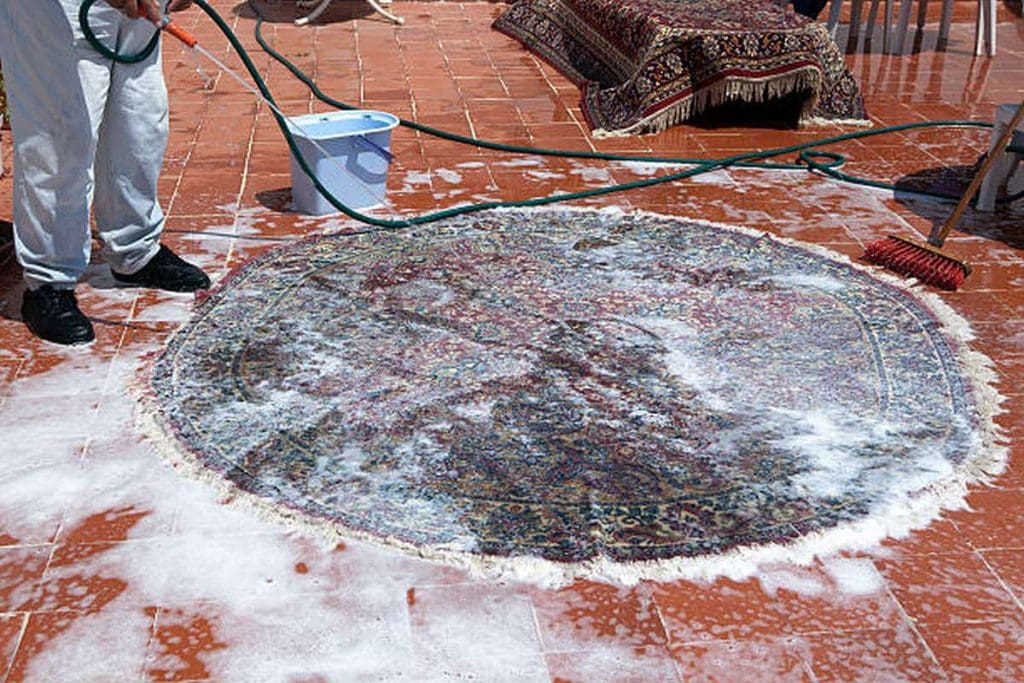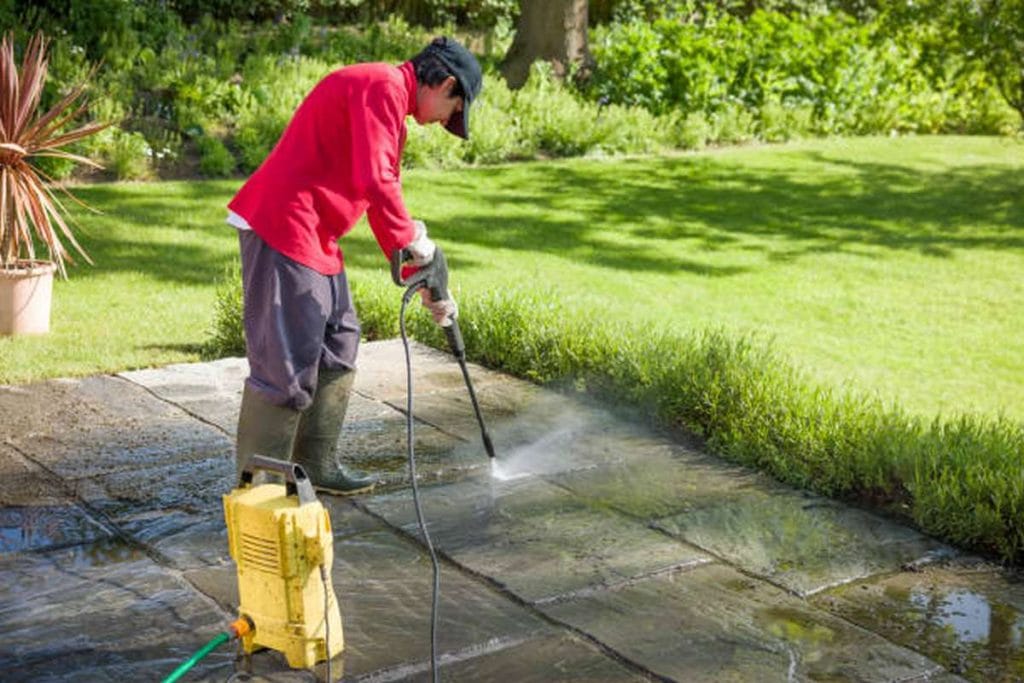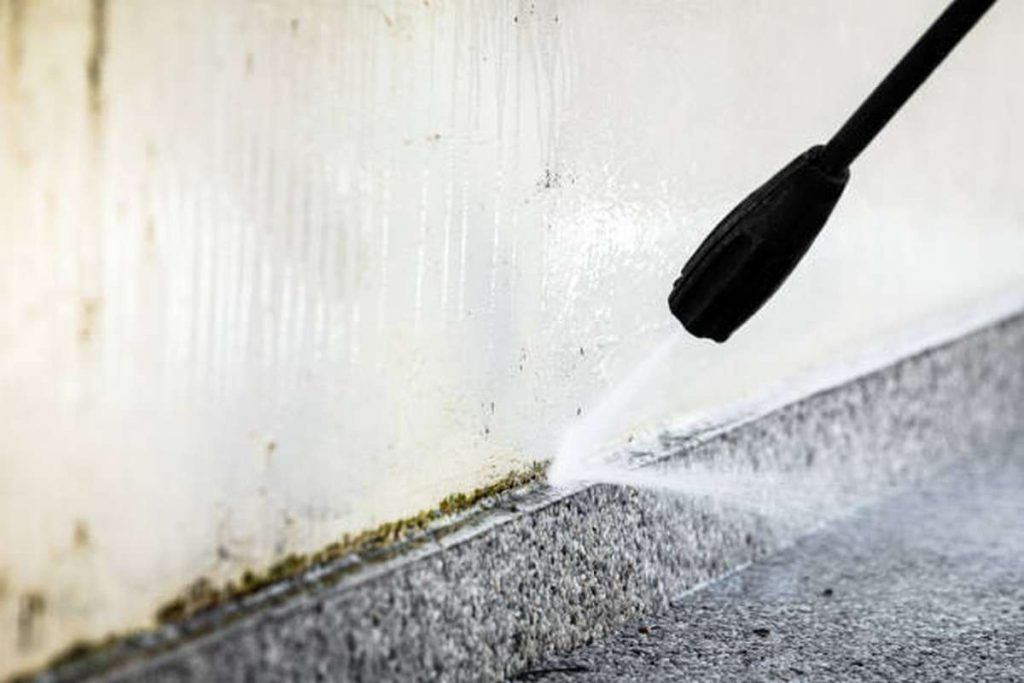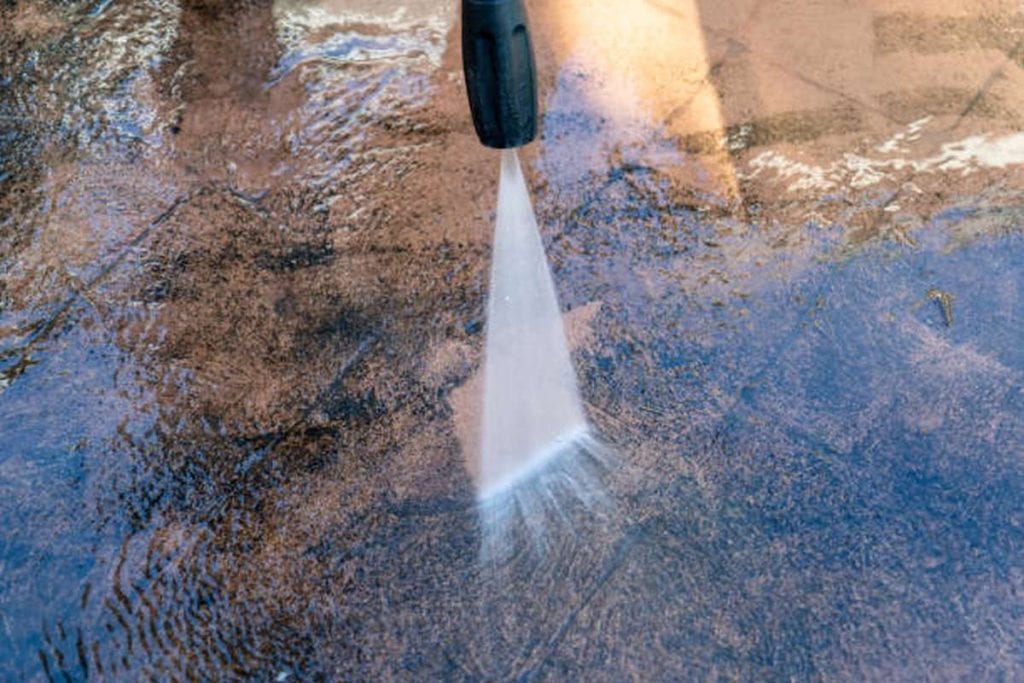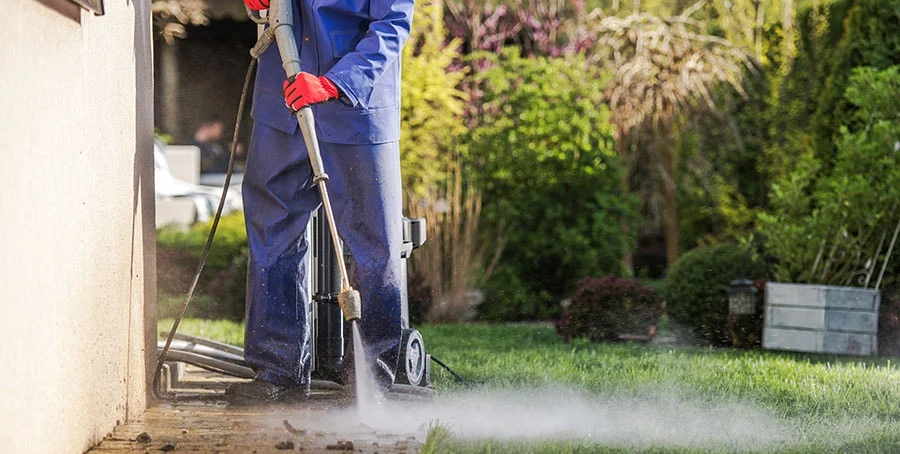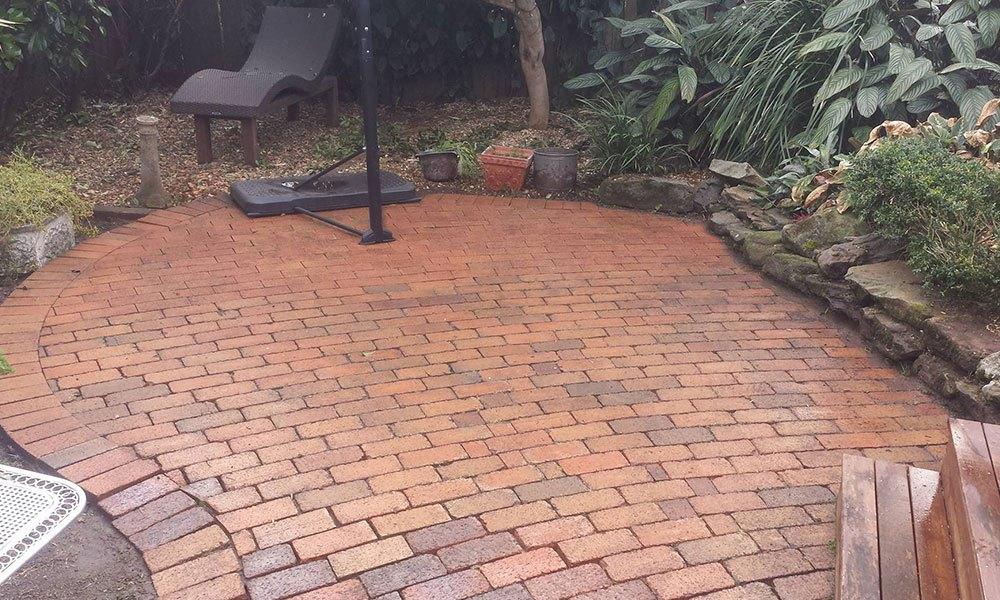Are you looking for the best way to pressure wash your house? If so, then we've got good news! Pressure washing is a great way to revitalise and refresh the exterior of your home without having to break out any significant painting tools. Not only will it help make your home look more inviting, but it can also keep away those pesky dirt, grime, and mildew that tends to accumulate over time. Plus, it's surprisingly easy—all you need is a few simple cleaning essentials and some patience. So let’s dive into this guide on how to pressure wash your house with ease and get your home brand new in no time!
Be Sure To Read This Before You Get Started
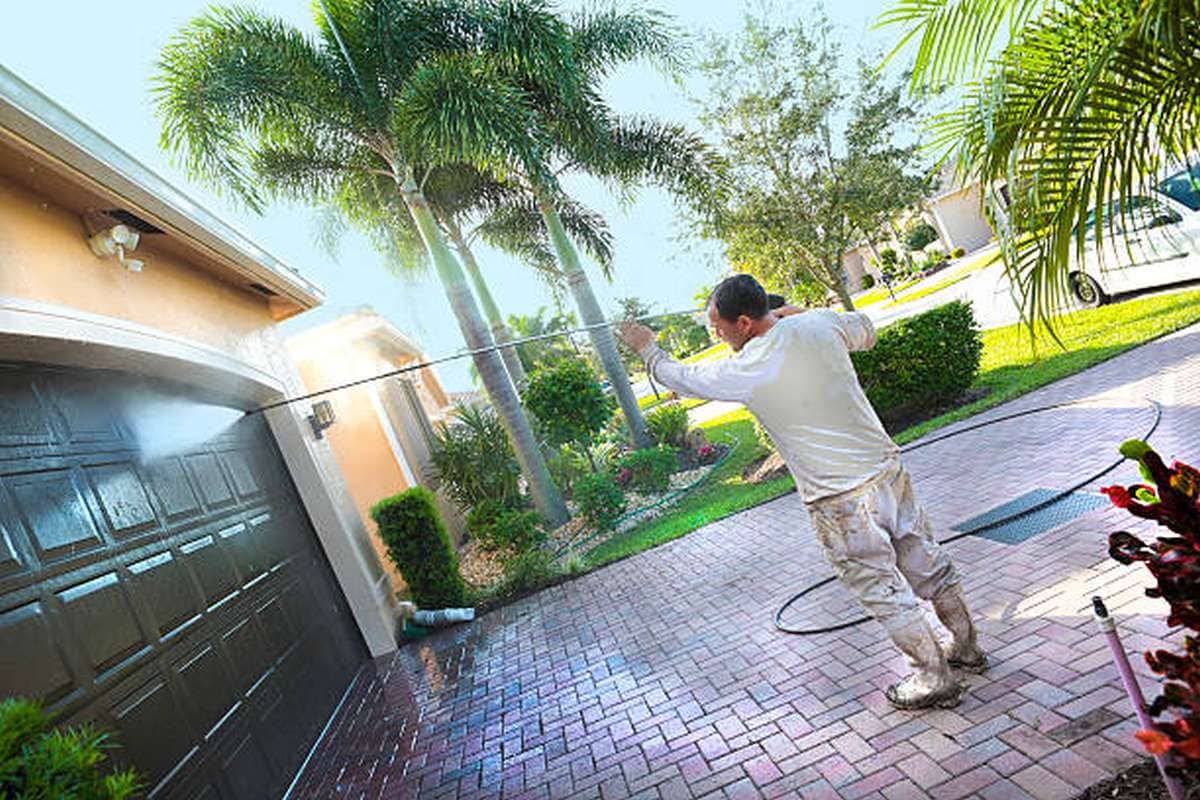
Determine if there will be a nice day in the spring or fall, and schedule your power washing accordingly. It's best to avoid doing laundry while the sun is at its hottest in the summer, as this can cause the cleaning agents to dry before removing them properly. However, your home will be sparkling clean in no time if you use the right products, put in the time to scrub and use the right technique, and finish with a good rinse.
Precautions To Take When Using A Pressure Washer
- If a pressure washer is used directly on the eyes, it can cause instantaneous blindness or even a complete amputation of the skin. Never use the device irresponsibly by spraying a friend or rinsing your hands and feet.
- Combining water and electricity can be fatal. Water can get inside through exterior outlets, so either plugs them up or cover them with duct tape. While working, keep an eye out for any power lines that might be in the way of the extension wand and be careful not to hit them.
- Put on some goggles. Dirt, rock, wood, and anything else the water touches can become dangerous projectiles.
- A power washer and a ladder are two tools that should be used separately. Even with a partner holding the ladder, the washer's recoil could throw you off. Because of the danger of rebound, scaffolding is frequently used by experts. Scaffolding with 6-foot rolling, lockable wheels can be rented, borrowed, or purchased (for around $200) if your property is more than one story high and you are determined to do the task yourself. You could use this with a 12-foot extension wand to clean a space as high as 24 feet off the ground.
Select Appropriate Equipment
You can choose from gas or electric types when shopping for a pressure washer. Electric washers typically produce 1,300 to 1,700 PSI (pounds per square inch), while gas-powered washers produce 2,000 to 2,800 PSI. This is why gas washers are widely regarded as more effective and can clean ten times more quickly than electric washers. However, gas-powered washers, while more powerful, are noisier and more delicate, so extra care must be used to avoid damaging floors, furniture, and other surfaces.
When shopping for a pressure washer, it's important to consider the PSI rating, but you should also look at the gallons per minute rating. In terms of cleaning effectiveness, a machine with a flow rate of 5 GPM and a pressure of 1,700 PSI is preferable to one with a flow rate of 4 GPM and a pressure of 2,000 PSI. Choose a machine that can also discharge cleaning agents along with water. A little bit of chlorine goes a long way when it comes to keeping concrete clean and mould-free.
Keep To Yourself
To misuse or mishandle a pressure washer is to put oneself in harm's way because of the machine's force. Therefore, wear protective eyewear, earplugs, boots, long-sleeved, and gloves whenever handling one.
Ensure no one will stand in the spray's path before activating the equipment. Blinds, doors, eaves, and screens are susceptible to damage from a pressure washer, so hold the machine firmly with both hands and avoid making erratic movements. If the day is windy, you should postpone your outing until the conditions calm down.
Always Get People And Pets Out Of The Way Before Using A Pressure Washer.
Keep humans and pets safe from any pressure washing you undertake around the property. As a result of its natural curiosity, your dog may approach the pressure washer with the potential to suffer significant injury if it were to get sprayed.
Get Your Stuff Together
You can only get the most out of your pressure washer if you have access to plenty of water. Filling a 5-gallon bucket should take less than two minutes; if it does, your home likely needs a powerful enough water supply for the washing machine.
You also must ensure that your washer's hoses and accessories are properly connected and that the inlet filter is clean. Toys and other fragile objects can be easily broken if you clean around them and leave them lying around.
Tend To Your Plants
Be careful not to spray your rose garden with pressured chlorine, as the results may not be so pretty. If you want to be sure that any cleaning solution that does get on your plants is diluted, you should water them before, during, and after you pressure wash.
Replacing Any Cracked Bricks
Before you start washing bricks, take stock of the area and make a note of any damaged mortar. Then, fix these areas and wait a week before washing them.
Get Some Space Between You And Them
If you need to wash something, don't jump in and hit it with a gush of water at full pressure; instead, do it slowly and steadily. Start washing at a distance of 10 feet, and go in closer until the pressure is just right for loosening and removing the dirt and filth.
Do Not Clean Places That Are Difficult To Access.
Pressure washing your roof, top windows, and other out-of-reach surfaces is tempting. It's a sad fact that people die in their homes every year after trying to do this. If you need help to clean a high spot safely, don't do it. Trust the experts.
Recognise The Nozzles
The multiple nozzle tips included with your pressure washer are designed for certain uses. For general cleaning, whether of a wooden deck or the exterior of your home, a wide nozzle (about 40 degrees) works wonderfully. The filth on brick and concrete can be attacked with a more narrow surveillance camera nozzle, whereas metal stains require the severe pressure of a nozzle with a 15-degree nozzle or less. The apexes of all nozzles are colour-coded so that you can quickly identify the one you need.
- Red means 0 degrees; keep the nozzle at least a few inches away from any surface.
- Typically used at a 15-degree angle, yellow sandpaper is ideal for cleaning dirt and grime off surfaces before painting, staining, or resealing.
- The optimal temperature for laying bricks is 25 degrees, considered green.
- Temperature whiteness (40 degrees) is ideal for quick exterior house washing.
- Blackwater, at 65 degrees Fahrenheit, is mild and is used mostly to damp surfaces rather than clean them.
Always use the mildest method appropriate for the stain and material at hand when cleaning. Don't let the cleaning solution dry before applying it from the bottom up and rinsing it off.
Tweak The Spray's Direction
Make the nozzle parallel to your washing surface to get the greatest suction out of your washer. Investing in a pivoting nozzle wand is a good idea if you need to wipe an inconveniently located area, such as the top of the siding.
It's Important To Recognise Your Limitations.
Acorns, fertiliser, oil, and rust leave stains that can't be removed by pressure washing on their own. Furthermore, some jobs need to be bigger or higher for the tools you currently have on hand. If you're worried about doing too much damage to your house (or yourself), you can always hire a professional power washer to look at it for you (the going rate for a house pressure wash is between $100 and $650).
Preserve Your Gear
When not in use, keep your washing machine inside to protect it from the elements. Fill the pump using undiluted RV antifreeze for added machine protection over the winter.
Roof Shingles Should Not Be Cleaned
If your shingles appear unclean, you might be tempted to use a power washer to clean them. However, shingles' structural integrity can be compromised because of the grit that is blasted off during pressure washing. A roof's lifespan can be reduced by years with just one pressure wash.
Do Not Wipe Down The Glass
Damage to windows is common when using a power washer, especially on older panes. Only attempt to pressure wash windows if you know what you're doing.
How About A Power Washer, But Is It Gas Or Electric?
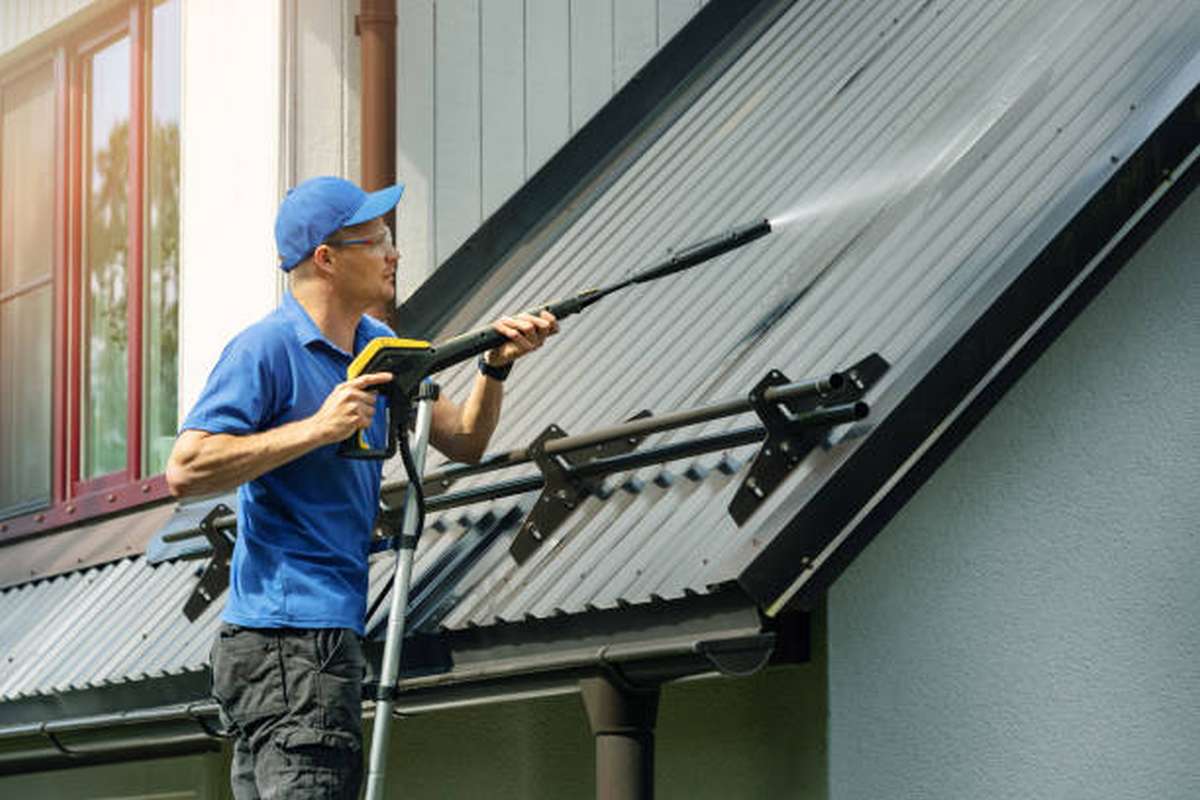
The water pressure in a pressure washer is increased by using a pump, which forces the water through the washer's hose at a higher pressure. Either gasoline or electricity can be used to run that pump.
Both choices have their advantages and disadvantages.
Pressure Washers That Use Gas Are Gaining Popularity.
In comparison to their electric counterparts, gas-powered washers often have higher PSI (pounds per square inch) and GPM (gallons per minute). They can clean surfaces considerably more quickly due to the increased power.
Advantages Of Gas-Powered Pressure Washers
- A variety of PSI and GPM outputs are possible from gas-powered pressure washers. You'll have more alternatives which clean more quickly and effectively than electric models.
- Gas-powered pressure washers don't require an electrical outlet. You can keep working even if you aren't close to an electrical socket.
Disadvantages Of Gas-Powered Pressure Washers
- However small, gasoline engines still need regular upkeep. If you intend to keep the machine in storage for an extended time, remember to give it regular oil changes and apply the correct fuel additives.
- Gasoline engines produce more noise than their electric counterparts. They also contribute to air pollution. Also, any gas-powered pressure washer should never be used inside or under any roof.
Machines That Use Electric Pressure To Clean
Electric washers may be more practical in some situations compared to their gas-powered counterparts. You also will not be concerned about breathing in toxic gas vapours.
The Benefits Of Using An Electric Pressure Washer
- Electric pressure washers do not create chemical byproducts. If necessary, you could use one indoors, but you'd need some hearing protection and a good way to drain the water.
- You never need to change the oil or perform routine maintenance when you have an electric motor.
Electric pressure washers have some drawbacks.
- Compared to a gas-powered washer, an electric machine can't deliver the same cleaning force. Using an electric power washer to clean a large or particularly unclean area is time-consuming. (You might still need to get the expected outcomes.)
- Electric pressure washers are less mobile than gasoline ones since they need to be plugged into an electrical socket.
Conclusion
A pressure washer can instantly blind a person if used on their eyes, and it can even slice the skin off an arm or leg if used on the body. Plug or tape up any outdoor outlets that could allow water to enter the home. When using an extension wand, be wary of above electricity wires and take precautions to avoid contact with them. PSI, or pounds per square inch, is a key metric to look at while searching for a pressure washer. It's ideal to have a machine that can pump at a rate of 5 GPM and at a pressure of 1,700 PSI.
It shouldn't take more than two minutes to fill a 5-gallon bucket. If that's the case, you'll need a water heater that can handle the appliance's demands. If you have a rose garden, you should probably avoid spraying it with high-pressure chlorine. In addition to making sure the inlet filter is clean, you should also check that all of the hoses and accessories for your washing machine are securely connected. A wide nozzle (approximately 40 degrees) is great for general cleaning, whether you're washing down a wooden deck or the outside of your house.
Hiring a professional is a good idea if you're worried about damaging your home while using a pressure washer. When cleaning, always use the least harsh product possible for the given stain and substrate. Your washing machine needs to be stored indoors while it's not in use to avoid damage from the weather. Since gas-powered pressure washers don't need to be plugged in, you may keep working wherever you happen to be. In terms of cleaning power, an electric washer simply can't compare to its gas-powered counterpart. Cleaning a large or extremely dirty area with an electric power washer takes time.
Content Summary
- The hottest part of the day can cause the cleaning agents to dry before they are properly removed, so it's best to avoid washing laundry then.
- If you have the correct products, take the time to scrub and use the right method, and end with a good rinse, however, your home will be spotless in no time.
- A pressure washer can instantly blind a person if used on their eyes, and it can even slice the skin off an arm or leg if used on the body.
- Use the gadget carefully, and never spray someone in the face or use it to wash your hands and feet.
- Water and electricity are a lethal combination.
- If you don't want water to seep inside, seal off any exterior outlets by taping over the openings or plugging them.
- When using an extension wand, be wary of above electricity wires and take precautions to avoid contact with them.
- Wear protective eyewear.
- Anything the water comes into contact with, such as dirt, gravel, or wood, can become a hazardous projectile.
- You shouldn't use a pressure washer on a ladder or vice versa.
- Recoil from the washer may cause you to lose your balance even if someone else were holding the ladder.
- Scaffolding is a common tool among professionals because to the risk of rebound.
- If your property is higher than one story and you're determined to perform the job yourself, you can rent, borrow, or buy (for about $200) scaffolding with 6-foot rolling, lockable wheels.
- With a 12-foot extension wand, you could reach up to 24 feet off the ground and clean there.
- When looking for a pressure washer, you have the option of either a gas or electric model.
- Pressure levels range from 2,000 to 2,800 PSI for gas-powered washers, compared to 1,300 to 1,700 PSI for electric ones.
- That's why most people agree that gas washers clean better and faster than electric washers.
- Look at both the PSI and the GPM while you're buying a pressure washer.
- A machine with a flow rate of 5 GPM and pressure of 1,700 PSI is preferred to one with a flow rate of 4 GPM and pressure of 2,000 PSI in terms of cleaning efficiency.
- Pick a unit that not only spits out water, but also detergent and other cleaning supplies.
- In order to maintain clean and mold-free concrete, only a small amount of chlorine is required.
- The force of a pressure washer can cause serious injury if it is used improperly or handled roughly.
- Because of this, it is imperative that you protect your eyes, ears, feet, and skin by donning goggles, earplugs, boots, long pants, and gloves before touching one.
- Before starting the machine, make sure no one is in the spray's way.
- When using a pressure washer, it's important to keep a firm grip on the machine with both hands and to avoid making any sudden movements that could cause the washer to lose pressure and cause damage to the blinds, doors, eaves, or screens you're cleaning.
- It's best to wait for the winds to go down before heading out.
- Before using a pressure washer, make sure everyone and everything is safely out of the area.
- If you plan on using a pressure washer anywhere on the property, make sure to protect people and animals from harm.
- Your dog, in its innate curiosity, may approach the pressure washer, putting itself in danger of being severely sprayed.
- If you want to get the most out of your pressure washer, you'll need access to a lot of water.
- If it takes longer than two minutes to fill a five-gallon bucket, then your home probably doesn't have a strong enough water supply for a washing machine.
- In addition to making sure the inlet filter is clean, you should also check that all of the hoses and accessories for your washing machine are securely connected.
- If you clean around toys and other fragile items and then leave them laying around, they are much more likely to get broken.
- TLC If you have a rose garden, you should probably avoid spraying it with high-pressure chlorine.
- Watering your plants before, during, and after a pressure wash will dilute any cleaning solution that might splash onto them.
- Inspect the area for damaged mortar before beginning to wash bricks.
- Then, repair these spots, wait a week, and wash the items.
- Put some distance between you and that person. Washing something requires patience and persistence rather than a sudden burst of full-pressure water.
- In order to loosen and remove the dirt and filth, begin washing at a distance of 10 feet and go in closer until the pressure is just right.
- Never attempt to clean an inaccessible area.
- The temptation to use a pressure washer to clean your roof, upper windows, and other hard-to-reach areas is understandable.
- Unfortunately, every year, people die from this very cause in their own homes.
- Do not clean a high location without assistance.
- Don't second-guess those who know what they're doing.
- Your pressure washer's assortment of nozzle tips is optimised for specific tasks.
- A wide nozzle (approximately 40 degrees) is great for general cleaning, whether you're washing down a wooden deck or the outside of your house.
- A surveillance camera with a narrower nozzle can be used to clean brick and concrete, while a nozzle with an angle of 15 degrees or less is needed to remove stains from metal.
- Each nozzle's apex is uniquely coloured so you can find the one you need in a flash.
- Keep the nozzle at least a couple of inches away from any surface if the temperature indicator is at red.
- Yellow sandpaper, held at an angle of 15 degrees, is great for removing old paint, stain, or sealant before priming, painting, or staining a surface.
- When cleaning, always choose for the gentlest option that will get the job done without damaging the surface.
- Avoid letting the cleaning solution dry before working from the bottom up and rinsing it off.
- The strongest suction will result from positioning the nozzle perpendicular to the washing surface.
- If you need to wipe an awkwardly placed region, like the top of the siding, investing in a rotating nozzle wand is a fantastic choice.
- Realising your own limitations is crucial.
- Stains from things like acorns, fertiliser, oil, and rust cannot be washed out with only power washing.
- Some tasks may also require equipment that is larger or taller than what you currently have available.
- You may always have a professional power washer take a look if you're afraid about causing too much damage to your home (or to yourself) (the average cost of a house pressure wash is $100 to $650).
- Your washing machine needs to be stored indoors while it's not in use to avoid damage from the weather.
- RV antifreeze should be poured into the pump undiluted for maximum protection of machinery during the winter.
- Shingles on a roof should not be cleaned. Shingles that have become dirty may encourage you to resort to using a pressure washer for cleaning.
- However, the grit that is blasted off during pressure washing can weaken the structural integrity of shingles.
- In just one pressure wash, a roof's lifespan can be shortened by years.
- Power washing can be harmful to windows, especially older ones.
- If you don't know what you're doing, don't even try to pressure wash windows.
- A pump is used to raise the water pressure in a pressure washer, which then pushes the water through the hose at a much higher pressure.
- The pump can be powered by gasoline or electricity.
- One may find benefits and drawbacks to both options.
- Gas-powered pressure washers are becoming more and more common.
- Gas-powered pressure washers may generate pressure and flow rates in a wide range.
- A wider variety of options will be available to you that clean more rapidly and thoroughly than electric models.
- Pressure washers that run on gas don't need access to electricity.
- If you aren't near a power outlet, you can keep working.
- Regardless of size, even the smallest gasoline engines require regular maintenance.
- Make sure to maintain up with oil changes and gasoline additives if you're putting the machine away for a lengthy period of time.
- Noise levels from gasoline-powered vehicles are higher than those of electric ones.
- Further, they add to the smog that already exists in the air.
- Never use a gas-powered pressure washer indoors or anywhere that has a roof over it.
- Powerful, pressure-based, electrically-driven cleaning machines
- There are times when an electric washer may be more convenient than a gas one.
- There will also be no need to worry about inhaling any potentially dangerous gas vapours.
- By contrast, the byproducts of electric pressure washers are completely harmless.
- You could use one indoors if you had to, but you'd want to cover your ears and find a way to get rid of the water quickly.
- Electric motors never require oil changes or other maintenance.
- The use of an electric pressure washer is not without its limitations.
- In terms of cleaning power, an electric washer simply can't compare to its gas-powered counterpart.
- Cleaning a large or extremely dirty area with an electric power washer takes time. (You may still need to in order to achieve your goals.)
- Because they need to be connected into an electrical outlet, electric pressure washers are less portable than their gasoline-powered counterparts.
FAQs About Pressure Washing
For best results in pressure-washing, position yourself 10 feet away from the surface you're cleaning, turn on the water, then step forward until the spray is just forceful enough to remove dirt.
Cold water is recommended for high volume low pressure applications to knock away caked on mud and debris or when stripping away paint. For all other applications Hot water will allow for faster cleaning and reduce the amount of detergent required. Hot water is especially recommended when cleaning grease and oil.
The main difference is that power washing uses highly pressurised steam to do the cleaning while pressure washing just uses unheated tap water, without the help of a heating element.
Optimal Season For Power Washing
A good rule of thumb is to pressure wash your house between the months of March and November. This is the ideal window of time to make sure your home is clean and protected before harsh winter weather and freezing temperatures set in.
Working from the top down can cause water and suds to run down the side of the house, making it more likely you'll miss a section. Spray in a horizontal, side-to-side motion. When spraying roof overhangs and gutters, always maintain a 45-degree angle.

